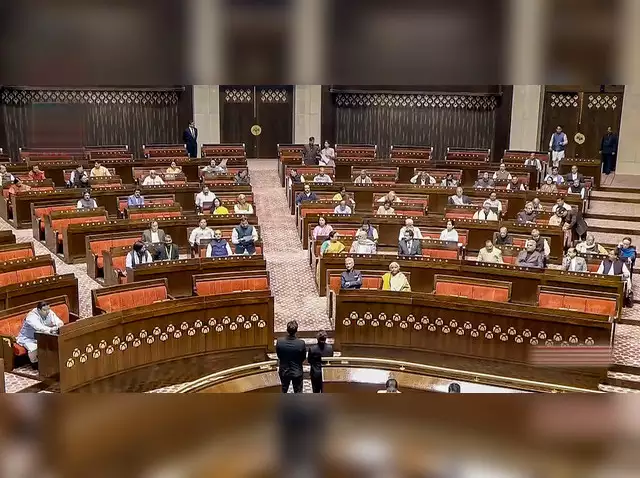GG News Bureau
New Delhi, 11th Feb. According to Union Minister for Tribal Affairs, Agriculture, and Farmers’ Welfare, Shri Arjun Munda, the government is dedicated to helping tribal communities thrive while protecting their sociocultural heritage. The three bills passed by the Parliament address long-standing demands from the tribal communities in Jammu & Kashmir, Andhra Pradesh, and Odisha.
The Legislature passed the Constitution (Jammu and Kashmir) Scheduled Tribes Order (Amendment) Bill, 2024, which added the communities of “Pahari Ethnic Group, Paddari Tribe, Koli, and Gadda Brahmin” to the list of Scheduled Tribes of the Jammu and Kashmir Union Territory. To amend the Constitution (Jammu & Kashmir) Scheduled Tribes Order, 1989 with regard to the UT of J&K, the Rajya Sabha passed a bill on February 9, 2024. Prior to this, on February 6, 2024, the Lok Sabha had approved the Bill.
Prior to this, on February 8, 2024, the Lok Sabha passed the Constitution (Scheduled Tribes) Order (Amendment) Bill, 2024 regarding Andhra Pradesh and the Constitution (Scheduled Castes and Scheduled Tribes) Orders (Amendment) Bill, 2024 regarding Odisha to effect inclusions in their respective lists of Scheduled Tribes. Dr. Bharati Pravin Pawar, the Union Minister of State for Tribal Affairs, Health, and Family Welfare, introduced the Amendment Bill in the Lok Sabha. On February 6, 2024, the Rajya Sabha had already approved the bill.
According to the Minister, the government is dedicated to ensuring the well-being of the nation’s tribal communities. She said that the Particularly Vulnerable Tribal Groups will receive justice through this Bill.
The goal of the Constitution (Scheduled Tribes) Order (Amendment) Bill, 2024 is to change the list of Scheduled Tribes with reference to Andhra Pradesh by amending the Constitution (Scheduled Tribes) Order, 1950. The Andhra Pradesh Scheduled Tribes list will include the following additions: –
Inclusion of the Particularly Vulnerable Tribal Groups (PVTGs) “Bondo Porja” and “Khond Porja” at entry 25 in Andhra Pradesh’s ST list. Adding “Konda Savaras,” or Particularly Vulnerable Tribal Groups (PVTGs), to Andhra Pradesh’s ST list at entry number 28.
In order to change the list of Scheduled Castes and Scheduled Tribes in relation to Odisha, the Constitution (Scheduled Castes and Scheduled Tribes) Orders (Amendment) Bill, 2024 proposed to amend the Constitution (Scheduled Castes) Order, 1950 and the Constitution (Scheduled Tribes) Order, 1950. The Odisha Scheduled Tribes list will be updated to include the following tribes:
- It is suggested that four notably vulnerable tribal groups (PVTGs) be added to the list of STs under their own names.
The synonyms Pauri and Paudi Bhuyan for Bhuiya and Bhuyan at Sl. No. 6; the synonyms Chuktia and Bhunjia at Sl. No. 9; and the sub-entry Bondo under STs “Bondo Poraja, Bonda Paroja” Banda Paroja” at Sl. No. 13; and Mankidia at Sl. No. 47, where it is used as a synonym for ST “Mankirdia.”
- Two names are removed from the Scheduled Castes list.
Both Tamadia and Tamudia are located at Sl. Nos. 87 and 88.
- Adding communities whose names are phonetically similar to or synonyms of already-existing entries in the State’s list of STs:
Sub-entry under main entry “Bhumij” at Sl. No. 8: Tamadia*, Tamaria, Tamudia*, Tamodia Bhumij, Tamudia Bhumij, Tamundia Bhumij, Tamulia Bhumij, Tamadia Bhumij and many more.
Members of the newly listed communities in J&K, Andhra Pradesh, and Odisha’s updated Scheduled Tribes list will also be eligible to receive benefits intended for Scheduled Tribes under the government’s current schemes once the Bills become law.
The National Scheduled Tribes Finance and Development Corporation offers concessionary loans, and the Ministry of Tribal Affairs oversees several significant programs, such as the Pre- and Post-Matric Scholarship, National Overseas Scholarship, National Fellowship and Scholarship Schemes, hostels for ST boys and girls, etc. In addition to the aforementioned, they will also be eligible for government-mandated benefits like admission to educational institutions and reservations in services.


Comments are closed.